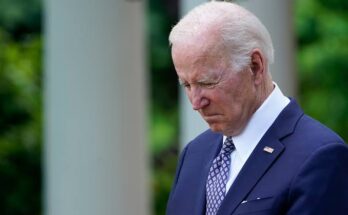By Awaal Gata
The world woke up to the report yesterday that Zimbabwe’s President Robert Mugabe was being held at his home but in fine fettle.
The reports relied on a statement by South Africa’s President Jacob Zuma, who had reportedly spoken to him.
Mr Mugabe was detained after the military took over control of the country.
Soldiers also seized the headquarters of Zimbabwe’s national broadcaster, where loud explosions and gunfire were heard during a night of mounting tension in the capital, Harare.
An army general appeared on television to insist that there had not been a military coup and that the president and his family were “safe and sound”.
There were reports yesterday of military vehicles blocking roads close to parliament in Harare, and outside the ruling Zanu-PF party headquarters.
Explosions and gunfire were heard in northern suburbs of the capital, including shots near 93-year-old President Robert Mugabe’s private residence.
Troops were said to have entered the headquarters of the national broadcaster ZBC, and Maj Gen Sibusiso Moyo then read out a statement on national television.
He assured the nation that President Mugabe and his family were safe, and insisted his security was guaranteed. The military was only targeting what he called “criminals” around the president, he said, denying that there had been a coup.
In the morning, a Twitter account which purports to be from Zanu-PF said there had been a “bloodless transition”:
Moments before, it claimed that the “first family” had been detained – this claim has not been corroborated.
The mood in the country
Zimbabweans were posting on Facebook and Twitter that there has been no dramatic effect on their normal lives, though some reports say there was an uneasy calm in the capital, Harare.
People said that shops were opened as normal but there were few people on the streets of the capital city.
Reactions
A statement from South Africa’s President Jacob Zuma says that he has spoken to Mr Mugabe who is being held at his home. It says that the veteran leader is “fine”.
Mr Zuma had called for “calm and restraint” in an earlier statement.
He said that he was sending a delegation to Zimbabwe to meet President Mugabe and the Zimbabwean Defence Force.
The statement also said that he was sending a team to Angola, in his capacity as the chairman of the Southern African Development Community, to meet President João Lourenço, who heads the body’s politics arm.
Nigeria’s President, Muhammadu Buhari, has also called for calm and a “respect for the constitution”, and said that every attempt should be made to save the country from “political instability”.
The head of the African Union (AU) said the crisis in Zimbabwe “seems like a coup” and called on the military to halt their actions and restore constitutional order.
Alpha Conde, who is also Guinea’s president, said the AU condemned the actions of top brass in the southern African nation as “clearly soldiers trying to take power by force”.
“The African Union expresses its serious concern regarding the situation unfolding in Zimbabwe,” a statement sent to AFP said, expressing support for the country’s “legal institutions”.
The African body further demanded “constitutional order to be restored immediately and calls on all stakeholders to show responsibility and restraint,” it added.
The European Union (EU) called for a “peaceful resolution” to the crisis.
“It is a matter of concern for the EU,” EU’s spokesperson, Catherine Ray, said.
“We call on all the relevant players to move from confrontation to dialogue with the aim to a peaceful resolution,” she told a daily briefing.
“We are following very closely what is happening on the ground, underlining that the fundamental rights for the citizens need to be respected and the constitutional order and democratic governance to be upheld.”
Britain urged all sides in Zimbabwe to refrain from violence and said the situation was “very fluid” after the military took control of the country.
“At the moment it’s very fluid and it’s hard to say exactly how this will turn out,” Foreign Secretary Boris Johnson said ahead of a formal statement in parliament.
Britain, the former colonial power, also changed its travel advice for Zimbabwe on Wednesday.
It called on Britons in the country “to remain safely at home or in their accommodation until the situation becomes clearer”.



